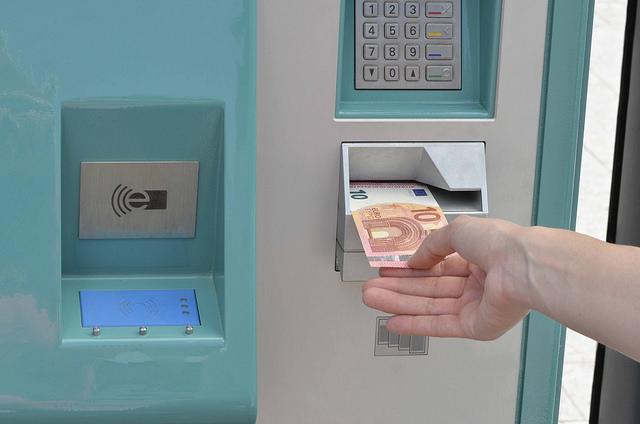
At its meeting on 23 September 2014, the Monetary Council decided that the Magyar Nemzeti Bank (MNB) would provide to the Hungarian banking system the foreign currency needed to phase out household foreign currency loans, including their settlement and conversion into Hungarian forint, said the bank in a statement.
The aim of the MNB’s programme is to ensure that the phasing-out of household foreign currency loans is carried out in a rapid and well-organised manner, safeguarding the stability of the financial system and without significantly affecting the exchange rate of the Hungarian forint.
The bill on the conversion states that overpayment due to unfair applications of foreign exchange spreads and unilateral interest rate or interest rate spread increases in consumer credit contracts should be accounted for as a prepayment of principal. This means a nearly HUF 1,000 billion refund to customers mainly relating to debt reduction. However, the banks’ actual losses might be even lower. New impairment set aside as a result of the debt relief will be reduced by the reversal of earlier impairment and tax reimbursement on the non-performing loan portfolio of households. Since the expected losses of the banks depend on the exchange rate, banks will endeavour to close their open foreign exchange positions in economic terms, which will generate demand for foreign currency.
After the settlement, conversion to Hungarian forint will also generate foreign currency demand. As a consequence of the conversion of foreign currency loans, banks’ foreign exchange position will open, which should be closed to cover foreign exchange risk. Banks will purchase foreign currency to close their positions.
The MNB’s programme aims at satisfying the foreign currency demand necessary for the settlement and the conversion further on, so demand for foreign currency appearing in financial markets will not put pressure on the Hungarian forint exchange rate. The supply of foreign currency will be covered by the MNB’s foreign exchange reserves.
In developing the programme, the MNB laid down as a basic principle that the reserve adequacy of the central bank must be continuously maintained. The MNB designs its instruments providing euro liquidity by taking into account the term structure, the applied financing model and the instruments used for covering risk. The programme consists of two facilities: a spot euro sale transaction (facility) conditioned on reducing short-term external debt, and a longer-term foreign currency swap transaction combined with spot euro sale.
With regard to the balance sheet structure characteristics of banks, the MNB requires that in the case of the conditional instrument, banks must reduce their short-term external debt by as much as 50% of the foreign currency received. The foreign currency liquidity will be rolled over by banks in swap transactions with the MNB until repayment of the short-term liability, so the amount received will remain with the MNB until its effective use. In the case of the conditional instrument, foreign exchange reserves will decrease in the short run, whereas through the repayment of short-term external debt the MNB’s need for foreign exchange reserves will also decrease and thus the existing room for manoeuvre of the MNB will increase.
The longer-term unconditional instrument, introduced together with the conditional instrument, will be a combination of a spot euro sale transaction and a long foreign currency swap (CIRS). This instrument will primarily provide a risk covering opportunity for those banks that cannot reduce their short-term external debt due to their financing structure built on long swap-transactions or long-term liabilities. Under the unconditional euro sale facility, banks can only have access to foreign currency liquidity at maturities longer than one year. Thus, the unconditional instrument will not reduce the level of foreign exchange reserves in the short run: the utilisation of the reserves – adjusted to banks’ needs – will be spread out over time.
The MNB’s programme will be available for banks from 13 October 2014. The Bank will maintain the programme in the phase connected to the settlements at least until the end of March 2015. In relation to foreign exchange spreads, unilateral interest rate and interest rate spread increases, the MNB allocated a total amount of EUR 3 billion for covering forint conversion by banks, out of which a maximum amount of EUR 1 billion will be offered for unconditional transactions and EUR 2 billion will be set aside for spot euro sales conditional on the reduction in short-term external debt. The MNB requires that every bank have recourse to its foreign currency facility only in relation to settling transactions with customers under the present programme. The MNB will set out the detailed rules of foreign currency tenders after consulting with banks.
The MNB closely monitors the legislative process relating the forint conversion of household foreign currency loans. In view of the details of the regulation on the forint conversion of households’ foreign currency loans, the MNB is ready to raise, to the extent necessary, the amounts allocated to its announced programme or to the two facilities to be introduced.
Due to its statutory duty to safeguard financial stability and its responsibility for solving the problem of foreign currency loans, the MNB assumes an important role in the well-organised phasing out, settlement and conversion of foreign currency loans. The MNB’s programme will not jeopardise the adequacy of foreign exchange reserves: the stock of foreign exchange reserves will remain above the level expected by international financial institutions and investors even in the case of maximum allotment of the instruments.

